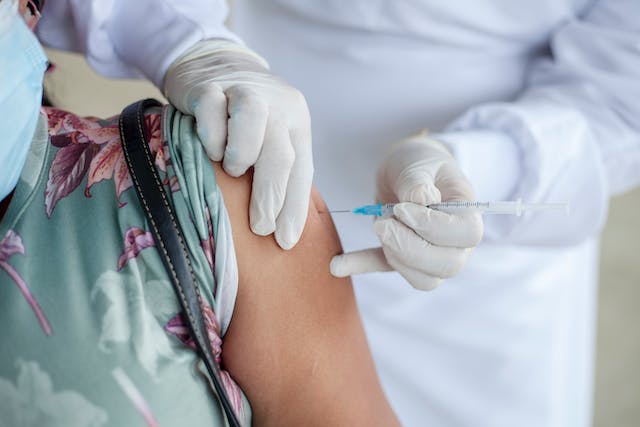As Cervical Cancer Awareness Month wraps up, there is some great news on the HPV vaccine front coming out of Scotland.
Published in the Journal of the National Cancer Institute, a Scotland-based study detected zero cases of “cervical cancer in women born between 1988–1996 who were fully vaccinated against HPV between the ages of 12 and 13.” This study is yet another step forward when it comes to proving the effectiveness of human papillomavirus (HPV) vaccines in preventing cervical cancer in women.
A cancer cure before cancer can strike
Cervical cancer has long been one of the most common types of cancers globally and is the “second most common cancer and the leading cause of cancer death in women in sub-Saharan Africa (SSA).” As medical innovation progresses, and screening becomes more available, cervical cancer is becoming more treatable. And with vaccines, it is also becoming a thing of the past.
Prior to the Scotland study, a number of other studies have shown the effectiveness of HPV vaccinations. For example, a study published in the Lancet Journal in 2021 found that cervical cancer was “almost eliminated” in women born after Sept. 1, 1995.
Additionally, a report published by the World Health Organization (WHO) in April 2022 stated that “a single-dose [HPV] vaccine delivers solid protection against HPV, the virus that causes cervical cancer, that is comparable to 2-dose schedules.” It went on to say, “This could be a game-changer for the prevention of the disease; seeing more doses of the life-saving jab reach more girls.”
Now, the Scottish population-based observational study, which linked screening, immunization with the bivalent HPV vaccine, and cancer registry data from Scotland, adds to that vaccine confidence.
While the study found that there were “no cases of invasive cancer were recorded in women immunized at 12 or 13 years of age irrespective of the number of doses,” the numbers shift for those who were vaccinated at an older age.
“Women vaccinated at 14 to 22 years of age and given 3 doses of the bivalent vaccine showed a significant reduction in incidence compared with all unvaccinated women,” according to the study. While not at 0%, the degree of reduction is highly notable as the study found that there were of 3.2 cervical cancer contractions out of a population of 100, 000.
HPV vaccine schedules
Studies of cervical cancer contractions have consistently found that when it comes to HPV vaccine schedules, earlier is better (and easier). While girls between 12 and 13 fare well with only one dose of the HPV vaccine, for older patients, a two- or three-dose schedule is more appropriate to ensure a higher efficacy.
It is also interesting to note that these studies focused on bivalent vaccines compared to quadrivalent or even 9-valent vaccines. Put simply, bivalent vaccines such as Cervarix target HPV types 16 and 18, while vaccines like Gardasil target HPV types 6, 11, 16, and 18, which cause cancer, as well as types 31, 33, 45, 52, and 58. This means that even with less coverage, the positive effects are still high.
Undoubtedly, as HPV vaccination schedules increase in public adoption, cervical cancer will become less and less of a threat to women.




